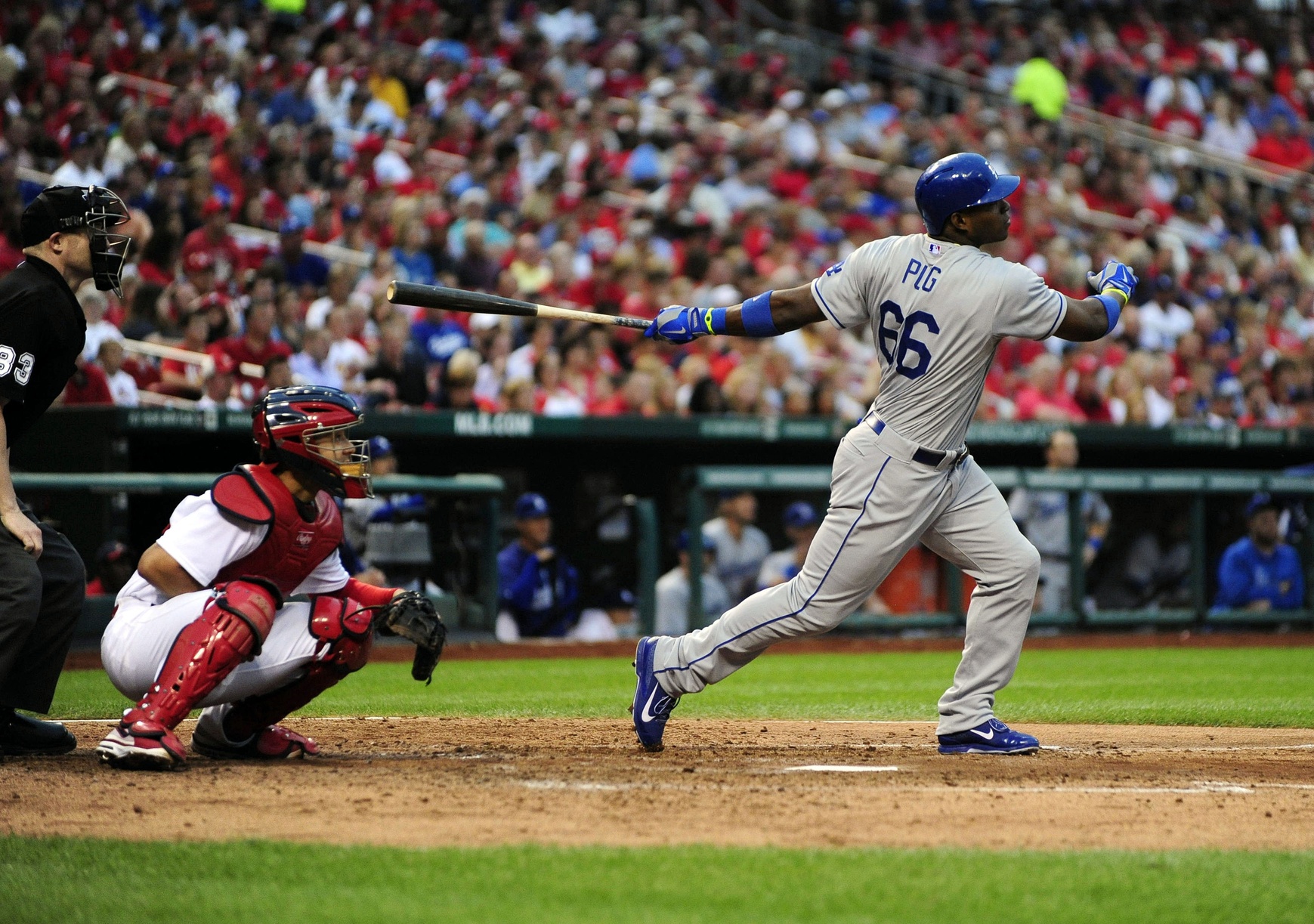The following interview was conducted by Matthew Hochberg, a Sport Management student at Ithaca College. The subject of the interview is Alex Radetsky, President and Founder of Radegen Sports Management.

Matthew Hochberg: What influenced you to become a sports agent?
Alex Radetsky: I think that being introduced, early on, to the business of sports helped (i.e college internships), as well as the appeal of the overall competitiveness of the business. I was on path to go to law school out of college but I was lucky enough to get the opportunity to intern with (what was then) the SFX Sports Group in 2000 and it all slowly fell into place from there.
Matthew Hochberg: What made you leave SFX and create your own agency, Radegen Sports Management?
Alex Radetsky: It was just one of those things; I was at a large firm, SFX Baseball, which was very powerful but I was intrigued about going out on my own. I had been with larger firms for 11 years or so and I knew I was up for the challenge. After speaking with mentors and confidants, in and out of the industry, it only made me more excited to go out on my own.
Matthew Hochberg: When you were in the first-steps of starting your own agency, were you ever nervous it wouldn’t turn out how you thought it would?
Alex Radetsky: I wouldn’t say I was nervous but, just like in any other business, you can never be too cocky. The minute you get too comfortable is the minute you lose. There was certainly a learning curve, though. I spoke to a lot of people who started their own practices, in the business and outside of it, and I realized if you were consistent and did what you did best, things would ultimately fall into place.
Matthew Hochberg: Who was your first client, and how did you recruit him/her?
Alex Radetsky: With SFX Sports Group and SFX Baseball I worked with other agents, so I can’t really say I had any of my own clients there. However, I did build a strong relationship with many clients, particularly David Ortiz and Charlie Manuel. Actually, David was a groomsman at my wedding. Both David and Charlie, ultimately, became Radegen’s first two clients.
Matthew Hochberg: You recently signed up-and-coming star Yasiel Puig; what are your plans for him?
Alex Radetsky: Yasiel is extremely special. He has gotten noticed, and for good reason, not only for his baseball skills but his tremendous intangibles such as his smile and energy, his outgoing personality, dare I say his “It” factor. When we have someone like that, we definitely want to take advantage of all of the opportunities but it’s important to take it slow and not get overly excited. He is going to be a great player for a long time and the sports industry is fickle. We have to stick to our game plan, remain steadfast and, frankly, just let Yasiel be Yasiel.
Matthew Hochberg: Speaking of Puig, are you worried that once he starts to cool down and doesn’t get as much attention he will lose some of his marketability?
Alex Radetsky: No. Yasiel is 22-years-old, he plays for an iconic franchise and in a span of two to three months proved how well he can adjust to the media frenzy. Yasiel has drawn and will continue to draw the attention of many people outside the baseball world and that has tremendous value and shelf life, if you will. The marketability of a team, or player, can be a roller coaster at times. We just have to be consistent, help facilitate the right relationships and, again, let Yasiel be Yasiel.
Matthew Hochberg: As you mentioned, you represent David Ortiz. Jose Bautista is another prolific slugger you represent; are you working on any marketing projects with either of them at the moment?
Alex Radetsky: Absolutely. Jose Bautista has a large portfolio of deals that go a bit unnoticed in the U.S as many are Canadian based. Jose recently signed a large partnership with Coca-Cola to be featured all across Canada with a few iconic hockey names. We are about to announce a large apparel deal, as well, in which Jose will be highlighted throughout North America.
In September, David Ortiz will be a part of a national campaign (yet to be announced) with an Olympic gold medalist and a TV personality. We are also very close to announcing a large deal within the QSR category. David is hotter than he’s ever been and that’s saying a lot.
Matthew Hochberg: Not only do you represent MLB players, but NHL players as well; are you working on any marketing projects with Brad Richards of the NY Rangers?
Alex Radetsky: We are – Brad actually just signed a large partnership with prominent MSG sponsor Chase. Brad is going to be one of Chase’s top ambassadors and it’s a perfect fit for him. He’s a veteran leader who is well-rounded, has succeeded at the highest level and he loves to mingle and talk sports/life with business leaders. In addition to Chase, Brad also has a multi-year deal with Muscle Tech which features him in national print, POS, etc with other big names including Jose Bautista.
Matthew Hochberg: Not only do you represent athletes, but managers, sports broadcasters and radio hosts. How does the style of representation of a professional athlete differ from that of a manager, broadcaster and radio host?
Alex Radetsky: The main variable in representing team sport athletes versus Olympians, coaches and broadcasters is that team sport athletes are protected and very often can be influenced by their respective unions. While marketing agents do not have to be certified by a team sport’s union, it still is critical to be aware of each union’s bylaws and also have a strong working relationship with their respective leaders. On the contrary, not all coaches/managers as well as broadcasters and Olympians have their own union, per say, and that alters an agent’s approach and strategy. Many times these athletes and personalities are underrepresented or taken advantage of (as so many agents have emphasized in the past) and you need to be cognizant of the hand your clients were dealt.
Matthew Hochberg: As strictly a marketing agent, do you feel it is easier, or more challenging than handling the management aspects of a client’s career?
Alex Radetsky: While we represent team sport athletes on the marketing side, we do, however, also represent some managers and coaches, as well as broadcast/media personalities on the contract side. Either way, I do not think it is my place to say whether it’s harder or easier. There’s always going to be a challenge no matter where you work in the industry. We have a great team over here but I don’t think it’s fair to say whether marketing is easier or harder than the management side, or vice versa. Frankly, it would be an insult one way or the other to our fellow agents or agencies.
Matthew Hochberg: Take our readers through an average day in the life of a sports agent, if there is one.
Alex Radetsky: I don’t know if there is one. Everyone’s human, everyone’s different and works the way they work and has a system. I will say for myself, I’m up late (especially having clients on the west coast), and my phone is on 24/7 with the ringer on by my bed. You need to give clients the ability to reach you, as they should, whenever they want. That’s part of the job and any good agent will tell you that. Obviously, there is also a lot of traveling involved. I rarely am in the office for five straight days when you factor in production days, photo shoots, and any meeting or matter than needs to be attended to in a timely fashion.
Matthew Hochberg: What is the most important aspect of being a sports agent?
Alex Radetsky: I know millions of people have said this, but it is all about relationships. It is important to remember you’re building these relationships so that you can continue to add value to your clients. That’s something that never stops and nor should it.
Matthew Hochberg: What advice can you give to college students looking to break into the industry?
Alex Radetsky: The sports industry is often misleading and it can be a lot smaller than most realize. It is important to make sure that the sports industry is for you. It is not as glamorous as one may think and most of all it’s important to make sure you’re ultimately passionate about it. Obviously the key is to gain experience (i.e. via internships) and to try to decipher if it’s an industry you want to explore. If you think the agent side appeals to you, in addition to internships, I’d recommend reading the words that some of the pioneers on the agent side have written such as Mark McCormick, Donald Dell or David Falk. Try to get the slightest glimpse and feel for what might be entailed and see how it goes. Anyone can say “I want to do this” but, eventually, may realize it is not for them. That is why you must get first-hand experience.
Matthew Hochberg: On behalf of Sports Agent Blog and all of our readers, I would like to thank Mr. Radetsky for sharing his knowledge and personal experiences with us. You can check out his company’s website at radegen.com and follow them on Twitter @RadegenSports.
